Reply To:
Name - Reply Comment
Last Updated : 2024-04-23 12:32:00
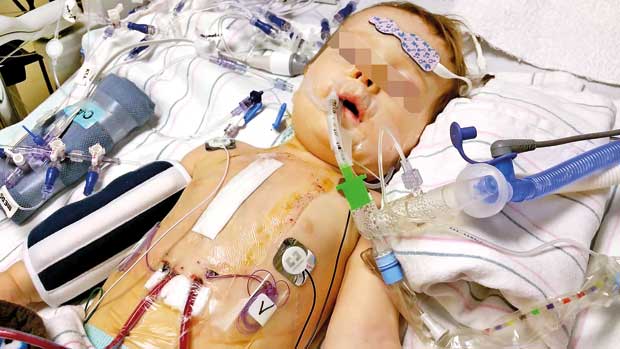
As a growing epidemic with statistics indicating a sweeping rise in the number of victims falling prey to an irrepressible mosquito menace, Dengue has become one of the biggest threats that needs to be defeated by healthcare officials and the public. While eradicating mosquito breeding grounds has become a strenuous struggle, it is also surprising to note how recent trends indicate a slight change  in the disease progression. With hospital staff continuously baffled by how to accommodate and provide equal attention and care to the rising number of patients being admitted to hospitals, the health sector is currently facing a huge challenge on how best to address the escalating dengue epidemic evident countrywide. Speaking to Daily Mirror, several experts representing the health sector shared their views and spoke on how best to address the dengue epidemic while highlighting the red flags that need to be tackled. Excerpts of their comments are given below.
in the disease progression. With hospital staff continuously baffled by how to accommodate and provide equal attention and care to the rising number of patients being admitted to hospitals, the health sector is currently facing a huge challenge on how best to address the escalating dengue epidemic evident countrywide. Speaking to Daily Mirror, several experts representing the health sector shared their views and spoke on how best to address the dengue epidemic while highlighting the red flags that need to be tackled. Excerpts of their comments are given below.
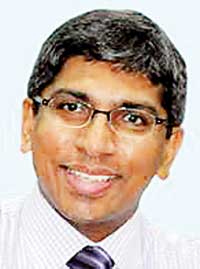 - Dr. Hasitha A. Tissera
- Dr. Hasitha A. Tissera
When asked about the current dengue epidemic in the country, Dr. Hasitha A. Tissera, Consultant Epidemiologist at the Epidemiology Unit of the Ministry of Health, said dengue was globally on the rise and is not just an issue in Sri Lanka. “There are several countries where cases of dengue have increased and whose numbers are expected to rise over the next couple of months. Vietnam, Thailand and even Singapore have reported an increase in dengue cases due to the prevalent warm weather. The epidemic has also affected India and discussions regarding the issue are being held in Cambodia. An upsurge in the number of dengue patients are expected in these countries. A new trend currently being observed is the gradual spread of dengue to North America and Europe.”
One reason Dr. Hasitha gave for the drastic rise of dengue in the country was the change in global weather patterns. The dry humid season which is relatively warmer with unexpected rain spells in between and an erratic monsoon pattern has had an effect on the transmission of diseases through mosquitoes. Dengue is a viral disease. As long as the mosquito responsible- the Aedes mosquito- thrives in the environment, it would result in the spread and transmission of the disease, as their survival is co-related to environmental conditions. He further emphasized that another reason for the increase in dengue patients was due to the migration of people from relatively rural areas to urban areas on a regular basis. “When non-endemic people migrate to endemic areas, they are exposed to the mosquitoes and thereby transmission increases with more people getting infected in the process.There are four distinct types of dengue infections and multiple types of the virus. So during the transmission of the disease at a given time, a larger group of people get infected due to the co-circulation of these multiple types.”
He also mentioned that the major involvement of other stakeholders other than health and community has been inadequate in order to suppress the condition. “The media, local government, both public and private institutions and public administrative units each have a role to play and help mobilize and empower people to bear social responsibility to safeguard the community. It should be a continuous exercise. We live in a self-centred community. The environment is equally important when it comes to dengue. Children especially must be educated on the protection of the environment. The more polluted the environment is, the more dengue breeding sites there will be. Construction, urbanization and globalization are other issues we cannot control but if the methods through which they are implemented are properly monitored and regulated, the ill-effects can be minimized.”
He said awareness of dengue amongst the public was gradually deteriorating. “When the death toll from dengue decreases, awareness on the disease also decreases among people. They take it lightly. This is not good.”
The spike in the numbers of dengue patients have been astonishing, especially with the dry spell that has been experienced in the country thus far. “People collect water during the dry season for household chores and these containers house breeding dengue mosquitoes.” Starting from the month of May, the south west monsoons are expected to go on for three months until the end of July. This is considered the period when dengue reaches its peak. Thus, heavy concerns are raised regarding the rise of dengue patients when the monsoon starts.
Therefore, in order to suppress the epidemic and control the number of dengue victims with the upcoming monsoon season, President Maithripala Sirisena has held a special meeting on May 16 regarding dengue concerns. All stakeholders and the presidential task force were summoned by him to the meeting and the President has directed the relevant authorities to take measures to protect the public. “Many of these measures were discussed. A three-month continuous programme has been drawn out and it will be in effect from the first of June. Traditionally during the months of May, June and July, there is a dengue peak season with the monsoon. The monsoon season is expected to start at the end of this month. Therefore this is a very timely intervention.” Already 600,000 premises have been inspected with the help of the tri-forces and police carrying out extensive programmes over the last four months. On May 18 and 19, another programme is scheduled to be held in selected high-risk localities according to Dr. Hasitha. “During these three months we hope to make a sustainable effort. In the health sector, we are making changes in our day-to-day routine in hospitals to develop the capacity to cope with the increasing number of dengue patients. On the preventive side, the President has asked all institutions in the country- both public and private- including schools, railway stations and bus depots, to conduct a regular programme for one hour at least on a weekly basis to clean their surroundings,” he added. Dr. Hasitha sees this as a golden opportunity for the community to make up for their carelessness and take responsibility for the problem.
On a final note, as a message to the public, Dr. Hasitha requests the people not to take health matters into their own hands and to seek proper professional medical assistance when the first symptoms of dengue appear.
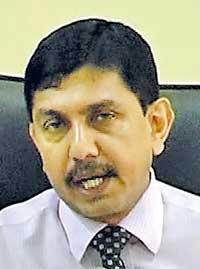 -Dr. Anil Jasinghe
-Dr. Anil Jasinghe
Deputy Director General of the National Hospital Sri Lanka (NHSL) Dr. Anil Jasinghe, said that currently there were about 100 Dengue patients admitted to NHSL, with about 25 patients who need close monitoring. About 20 new patients are being admitted daily. He said recent initiatives had been taken in the hospital to expand the number of High Dependency Unit beds, which are reserved for patients in the critical stages of dengue, to 60.
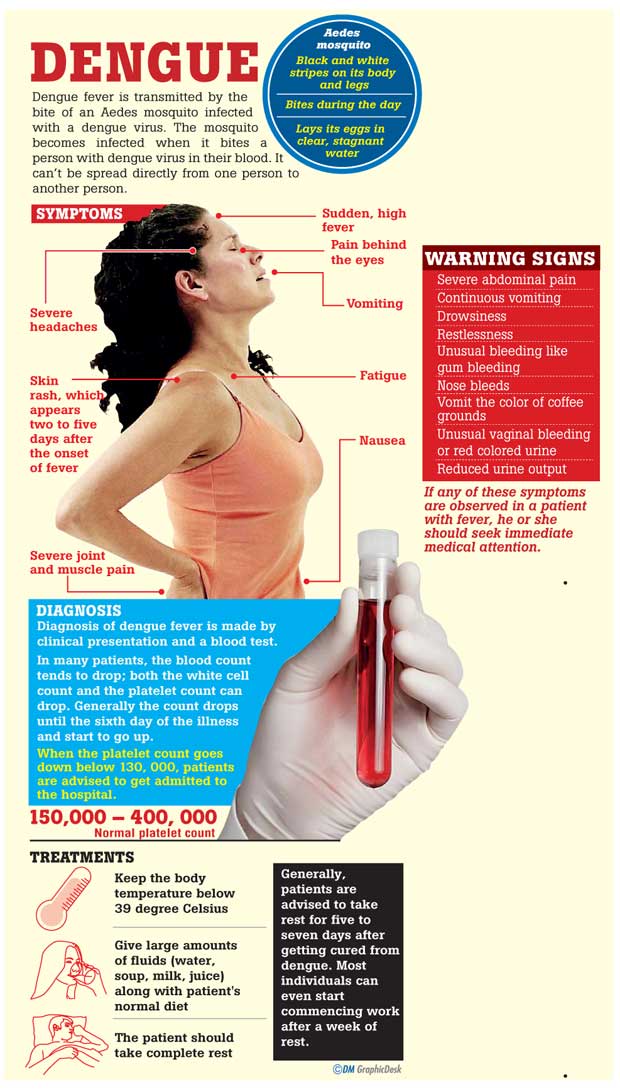
Deputy Director of the Colombo North (Ragama)Teaching Hospital (CNTH), Dr. Vajira Dissanayake said there were 138 dengue patients in the ward as of midnight on May 14. A total of 2,211 dengue patients have been admitted to the CNTH within this year, with 22 deaths. She said wards were overcrowded with more than 90 patients to 40 beds. The nursing staff and minor staff are also severely inadequate, according to Dr. Vajira. She stressed on the importance of early diagnosis of the disease, because many deaths from dengue were due to the delay in seeking treatment, with patients only coming to hospital when they were in the critical phase.
Director (acting), Teaching Hospital Kurunegala, Dr. Chandana Kendagamuwa said that by 7 am on May 15, the number of confirmed dengue patients admitted to the hospital was 188, with 56 suspected cases. The hospital staff is not adequate to manage the heavy patient load, so they are getting help from the army and have requested the Director General of Health Services for more staff from the rural hospitals of the area. Dr. Kendagamuwa added that several hospital staff too had recently contracted dengue, further affecting the shortage of staff. Even though it cannot be confirmed that the staff contracted the disease from within hospital premises, preventive measures are being put in place daily. Dr. Kendagamuwa predicts a possible further increase in the number of dengue patients with the beginning of the rainy season, and urges the general public to contribute to the prevention of dengue by destroying possible mosquito breeding sites in their homes and workplaces.
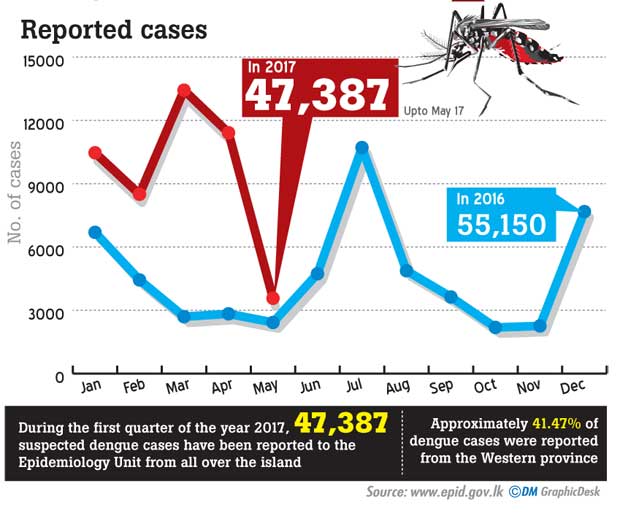 “50% of dengue patients are from the Western Province”
“50% of dengue patients are from the Western Province”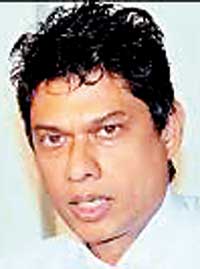 - Professor Arjuna de Silva
- Professor Arjuna de Silva
Dengue has risen drastically this year, and it has been the main focus of many medical professionals all over the island. Professor Arjuna de Silva, Consultant Physician, Teaching Hospital, Ragama also expressed his views on the matter. “The dengue epidemic we are facing this year is the largest we have faced so far. Only five months of this year have passed and there are over 40,000 dengue patients already. The current viral trend of dengue type 2 is a virulent virus type with more deaths taking place under dengue type 2. Fifty percent of dengue patients are from the Western Province. More HDUs (high dependency units) have to be introduced to all major hospitals so that more care can be given to patients with serious conditions. Preventive measures are of utmost importance. A vaccine against dengue is on trial these days. It has to be finalized as soon as possible so that we can suppress the rising condition of dengue in the country.” The dengue vaccine is anticipated to be finalized by next year.
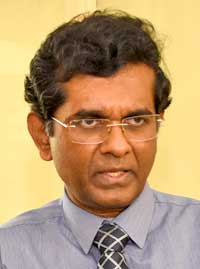 - Dr. Ananda Wijewickrama
- Dr. Ananda Wijewickrama
The number of dengue patients presently being reported is quite high when compared to earlier, says Consultant Physician of the Infectious Diseases Hospital (IDH) Dr. Ananda Wijewickrama. He commented that with the onset of the monsoon, the possibility of a large epidemic taking place in the country was evident. Noting that the patient intake at the Infectious Diseases Hospital is also on a rapid rise, he said around ninety to a hundred dengue patients were admitted to the hospital on a daily basis. “There have been a couple of deaths reported owing to dengue fever. The main cause triggering these deaths was the result of patients being admitted to hospital quite late; almost at the last minute. We have advised the public to take a blood test at the end of the second day after developing a fever. However, in the event the fever becomes subdued, some patients tend to avoid getting their blood tested as recommended on the second day but consider getting admitted only when the fever worsens again. Some of these patients were given painkillers while suffering from dengue fever. Other than Paracetamol, any other pill or painkiller should not be administered while a patient is suffering from dengue. Taking such painkillers could cause serious complications in a dengue patient” Dr. Wijewickrama said.
Noting that the symptoms of dengue fever have not changed overtime, Dr. Wijewickrama stressed that symptoms of dengue fever may include high fever, body aches, headaches and nausea. These are the commonest symptoms. When asked if plasma leakage could indicate a symptom progression in the patient, he explained that plasma leakage is one of the complications that must be detected early in patients. “There could be changes in the rate and timing of health complications depending on each patient. The main risk factor for the rising trend in the number of dengue patients reported is directly linked to the deadly increase in the number of dengue mosquito breeding grounds evident throughout the country. Due to the high number of dengue patients being admitted to the hospitals, the biggest issue faced by the health sector is how to accommodate all these patients in hospitals. Most hospitals in Colombo including those in Kalubowila, IDH, Homagama, Negombo and Ragama are filled with dengue patients beyond capacity,” he added.
Speaking to , Dr. Prachila Samaraweera of the Dengue Control Unit of Colombo provided a better insight to the state of the dengue epidemic that currently exists in the country and the reason for the sudden spike in the number of dengue patients.
According to Dr. Prachila, there are four types of dengue viruses, namely types 1,2,3 and 4 and out of the 4, types 1 and 4 have existed in Sri Lanka so far, type 1 being predominant since 2009. Since 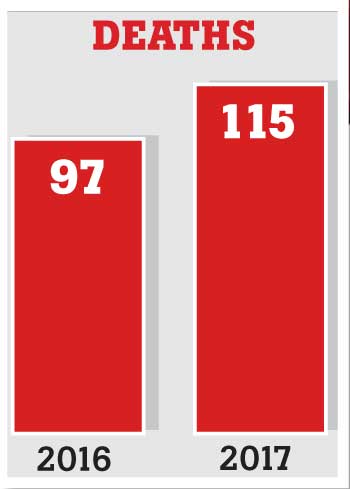 mid-2016 however, type 2 has also been plaguing the country. This Dr. Prachila says, may be due to migrations. “The Type 2 dengue virus is a virulent virus compared to types 1 and 4. People infected with type 1 subsequently also get infected with type 2 and ultimately develop the dengue haemorrhagic fever state. For seven years, our country has not been exposed to the type 2 dengue virus, so people do not build up immunity to type 2 easily.” She further reasoned that people did not build up immunity to type 2 as it displayed different symptom patterns when compared with dengue types 1 and 4. “In dengue types 1 and 4, to reach the severe stage of the disease, it takes a while, with the progression of time. But in type 2, people reach the severe stages in a very short time where the platelet count drops rapidly.”
mid-2016 however, type 2 has also been plaguing the country. This Dr. Prachila says, may be due to migrations. “The Type 2 dengue virus is a virulent virus compared to types 1 and 4. People infected with type 1 subsequently also get infected with type 2 and ultimately develop the dengue haemorrhagic fever state. For seven years, our country has not been exposed to the type 2 dengue virus, so people do not build up immunity to type 2 easily.” She further reasoned that people did not build up immunity to type 2 as it displayed different symptom patterns when compared with dengue types 1 and 4. “In dengue types 1 and 4, to reach the severe stage of the disease, it takes a while, with the progression of time. But in type 2, people reach the severe stages in a very short time where the platelet count drops rapidly.”
When observing the dengue statistics of 2016 and 2017 in comparison, it is not wrong to say that dengue has reached an epidemic state this year. Dr. Prachila said that in 2016, 55,000 dengue 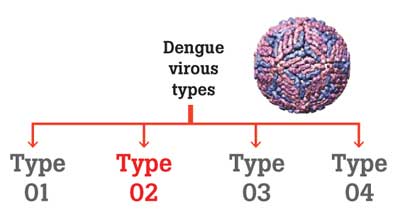 patients were reported island wide with a death toll of 97 but when the current year is taken into consideration, for just five months, a number of 44,000 dengue patients were reported from across the island with a death toll of 115. Dr. Prachila also said the highest number of dengue patients were reported from Colombo, which according to her might be due to urbanization.
patients were reported island wide with a death toll of 97 but when the current year is taken into consideration, for just five months, a number of 44,000 dengue patients were reported from across the island with a death toll of 115. Dr. Prachila also said the highest number of dengue patients were reported from Colombo, which according to her might be due to urbanization.
There have been various efforts on the government’s part in their attempts to reduce the spread of dengue in the country. Health campaigns, health inspection visits to houses and other premises to inspect dengue breeding sites, fumigation and pilot dengue vaccination programs are namely some. Despite all of these attempts, dengue has reached an epidemic state. “Upon admission of a dengue patient to the hospital, the hospital authorities inform the Health Ministry and our health inspectors visit the residential premises of the patients in order to inspect the area for dengue breeding sites.
There are only 2,000 health inspectors and the public expects our teams to show up and clean the premises to get rid of potential mosquito breeding sites. In other instances, when notified that health inspectors are visiting the locality, only then does the public take an interest in cleaning up their homes. This will not do.
The public must clean their premises themselves. The Health Ministry cannot be expected to clean each and every potential site for dengue mosquito breeding. To reduce the number of dengue victims, there has to be cooperation and support from the public. When speaking of fumigation, it is only effective on flying mosquitoes at the time of fumigating. It does not affect dengue breeding sites which are the source of the dengue problem,” says Dr. Prachila.
When asked whether she felt that awareness levels about dengue had risen among the public, she mentioned that a lack of awareness was not the issue. “People know about this. They just don’t care. 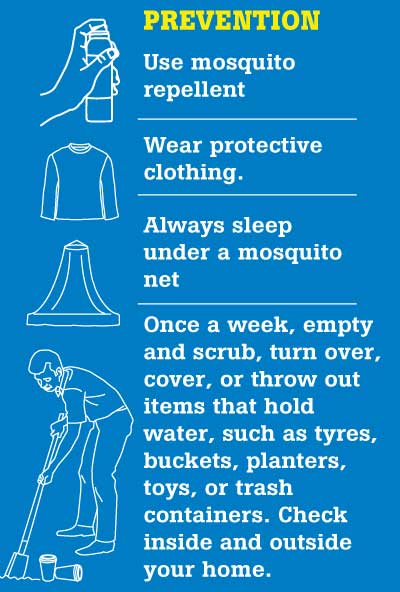 People come to hospitals at the last minute to get treatment. They follow untested myths such as cures through the extracted juice of the papaya leaf, which are of no use whatsoever. If a patient contracts fever, it is now advised to consult a doctor and get a blood count within 24 hours.” She also added that people have to be vigilant for symptoms in order to receive proper medical treatment on time. In 2015, there were reports of 30,000 dengue patients with a death toll of 54. Over the years the number of patients have increased along with the death toll. There is a directly proportional increase between the number of deaths and the number of dengue patients. “When the number of patients decrease, the rate of deaths follow. However when the rate increases, the health sector cannot cope with the number of patients. Each and every patient needs to be individually attended to. When the resources are limited, the death toll rises as facilities will not be helpful.” Dr. Prachila also said that during the special meeting held by the President on May 16 which addressed the dengue issue, he advised on the addition and constructing of new wings to the Kalubowila and Ragama teaching hospitals, with the intention of improving space facilities to accommodate the rising numbers of dengue patients. He also mentioned that schools premises too would have to be kept free of dengue breeding sites with proper maintenance.
People come to hospitals at the last minute to get treatment. They follow untested myths such as cures through the extracted juice of the papaya leaf, which are of no use whatsoever. If a patient contracts fever, it is now advised to consult a doctor and get a blood count within 24 hours.” She also added that people have to be vigilant for symptoms in order to receive proper medical treatment on time. In 2015, there were reports of 30,000 dengue patients with a death toll of 54. Over the years the number of patients have increased along with the death toll. There is a directly proportional increase between the number of deaths and the number of dengue patients. “When the number of patients decrease, the rate of deaths follow. However when the rate increases, the health sector cannot cope with the number of patients. Each and every patient needs to be individually attended to. When the resources are limited, the death toll rises as facilities will not be helpful.” Dr. Prachila also said that during the special meeting held by the President on May 16 which addressed the dengue issue, he advised on the addition and constructing of new wings to the Kalubowila and Ragama teaching hospitals, with the intention of improving space facilities to accommodate the rising numbers of dengue patients. He also mentioned that schools premises too would have to be kept free of dengue breeding sites with proper maintenance.
Dr. Prachila further stresses that in order to reduce the number of dengue patients reported every year and thereby to reduce the death toll, it is of utmost importance to reduce dengue mosquito breeding sites. Dr. Prachila mentioned that the public should be ready to act and support the Health Ministry hand-in-hand in its efforts to reduce the number of people falling victim to the clutches of dengue.
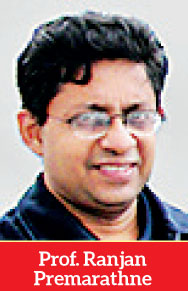 In an interview Daily Mirror conducted with Professor Ranjan Premarathne, Faculty of Medicine, University of Kelaniya and Consultant Physician of the North Colombo Teaching Hospital, Prof. Premarathne revealed yet another twist in the Dengue situation.
In an interview Daily Mirror conducted with Professor Ranjan Premarathne, Faculty of Medicine, University of Kelaniya and Consultant Physician of the North Colombo Teaching Hospital, Prof. Premarathne revealed yet another twist in the Dengue situation. He said some recent trends in the disease progression of dengue had been observed, which caused subtle changes in the clinical picture.
“No, symptoms have not changed. But we have observed some recent trends in the disease progression when compared to earlier,” said Prof. Premarathne. “The critical phase of dengue, also called the Leaking Phase, normally occurs after the third day ensuing fever, usually around the fifth or sixth day of the illness. However, there is an increasing number of patients entering the critical phase quite early after developing the fever. Such patients may show signs of going into the leaking phase as early as the third day since developing the fever. This is a condition that is common even in patients whose fever continues for more days than the expected time period. There is also an increase in the number of patients commonly known as ‘late leakers’. These patients may suddenly go into the critical phase despite not experiencing fever for a few days” he added.
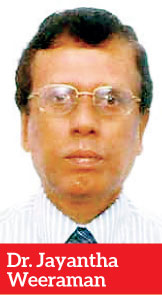 Jayantha Weeraman said the subtle changes occurring in the disease progression pattern was due to a change in the dengue virus strain.
Jayantha Weeraman said the subtle changes occurring in the disease progression pattern was due to a change in the dengue virus strain. “There are four strains of the dengue virus. The strains frequently seen in the majority of patients in our country were types 1 and 4. However there has been a recent increase in the number of patients being infected with type 2. This will account for the change in the clinical picture of the disease” he said. “The general public has no cause to be worried, as the symptoms as well as the management plan of the disease remain unchanged. But the need for early hospital admittance should be highlighted even more.”
He advises any patient with fever to be cautious and to immediately go for a check-up if they experience any warning signs of dengue, as there is a risk that they may be going into a state of shock. “Warning signs of dengue are severe abdominal pain, continuous vomiting, drowsiness, restlessness, unusual bleeding like gum bleeding, nose bleeds, vomit the colour of coffee, unusual urinary bleeding or red urine and reduced urine output,” Dr. Weeraman added.
“I’d like to stress that the confirmation test for dengue, called the NS1 antigen test, is only valid if done within the first two days of the fever. If done later than that, the result will be negative even if the patient is having Dengue fever. After three days of fever a full blood count test should be done. It is the responsibility of the primary care doctor to prescribe the relevant test for patients with fever and direct the patient to a hospital if required. Many casualties of dengue could be avoided if these instructions are followed by the community, avoiding unnecessary delay in diagnosis.
The prevention of dengue in Sri Lanka is the most critical step that needs to be taken. The staff and hospital facilities are severely inadequate in managing the increasing number of patients, due to the heavy patient burden of dengue. With two, sometimes three, patients sharing the same beds in a ward, there is insufficient care given to each patient. As a result, attention given to patients with other illnesses has also dropped drastically. Therefore, it is the duty of the relevant authorities to prevent the spread of dengue by controlling mosquito breeding,” Prof. Premarathne concluded.
Eradicate Dengue Friday, 21 July 2017 12:09 PM
Dengue - The more we isolate, the quicker the disease will disappear.How long do we have to isolate dengue patients? Is 4 months enough?http://eradicatedengue.blogspot.com/2017/07/how-long-do-we-have-to-isolate-dengue.html

Add comment
Comments will be edited (grammar, spelling and slang) and authorized at the discretion of Daily Mirror online. The website also has the right not to publish selected comments.
Reply To:
Name - Reply Comment
On March 26, a couple arriving from Thailand was arrested with 88 live animal
According to villagers from Naula-Moragolla out of 105 families 80 can afford
Is the situation in Sri Lanka so grim that locals harbour hope that they coul
A recent post on social media revealed that three purple-faced langurs near t